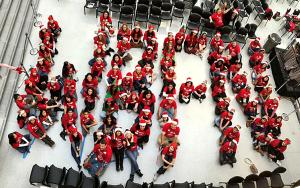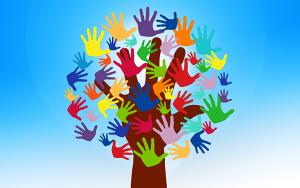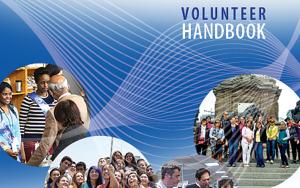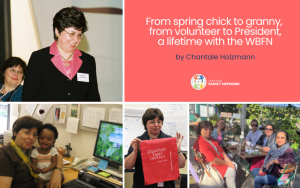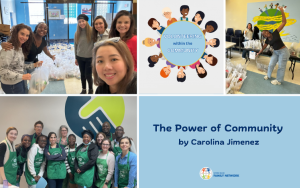
Christian Fonseca and Philippe Ruellan are currently on the Executive Committee (Philippe was just voted on) of the WBFN, which means they have a leadership role in the organization. We asked Christian and Philippe to share their thoughts on the place of men in the WBFN.
On being a member of the EC:
Christian: In my case, being a member of the WBFN has allowed me to learn the relevance of adding value to my community by sharing my time and knowledge. Becoming an EC member increases the range of ways I can do this. It has also given me a deeper understanding of the challenges that the organization faces to deliver a valued product to such a diverse community, using principally the work of volunteers. It is a great experience!
Philippe: First of all, it's about giving back. When my wife and I relocated to DC last year, I was
impressed by the WBFN's dedication to support the families of staff. I personally really benefited from the wide range of activities and education: the Jump Start Your Job Search sessions, seminars, and volunteering opportunities. Now I would like to contribute to the WBFN's development, and I think being on the EC is a good way to do it.
In terms of being a man, I didn't overthink my decision to join the EC. I was raised in a family and culture that emphasized gender equality. Moreover, the company I worked for all my professional life was dedicated to male-female equality. I was very used to working in a mixed gender environment, and I don't keep count of the ratio of men and woman when I'm on a team.
On attracting more men to the WBFN:
Philippe: The number of male members at the WBFN is getting close to fifty percent, which is great, however, these men aren't participating in activities and volunteering at the same rate as female members. I think this can be explained by the historical background of the organization, which was founded by and for women. This association still has an impact today, I believe. I also wonder if men tend to try to figure things out on their own rather than seeking the support of a community, especially one that they might perceive as serving a traditional "wife and family" client, even though this image is outdated.
Christian: Male members of the WBFN are not attending activities or volunteering at the same rate as women, even though they now make up 43% of the organization. My own perception, which other people might not necessarily share, is that men tend to put an enormous amount of time trying to get their career back on track after relocation, and other activities, even volunteering, aren't a priority for them. It would be interesting to test this hypothesis by checking to see if the activities they are attending are primarily about job searching and related skill-building.
On how to increase male participation:
Christian: We have discussed this at the men's Wednesday group. We have talked about needing to approach men by focusing on their strengths and skills instead of on their challenges, which we already know about. However, whatever changes we make to attract more men to participate, we also have to remember that these changes must strengthen and contribute to the WBFN itself. This is always a priority.
Philippe: I think it is important to highlight the professional support the WBFN offers to members. Most male members want to have a successful career shift when they follow their partner overseas. I believe the main goal for men is to find a new job as soon as possible. I think the WBFN could attract more male spouses/partners by emphasizing its professional support.

